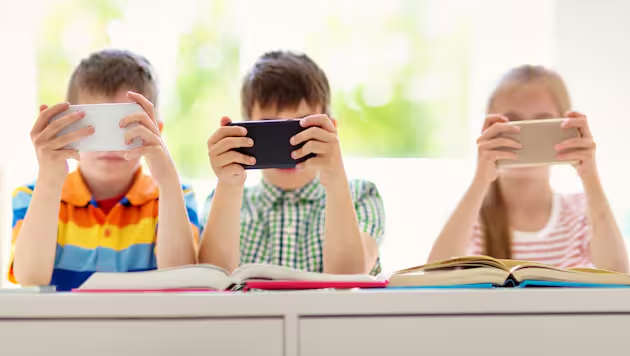Brazil's President Lula Signs Bill Limiting Smartphone Use in Schools.
On January 25, 2025, Brazil’s President Luiz Inácio Lula da Silva signed a new bill aimed at restricting the use of smartphones in schools. This legislative move reflects a global trend aimed at tackling the negative impact of excessive smartphone use on students' academic performance and mental well-being.
The law, which will apply nationwide, seeks to limit distractions in classrooms by prohibiting students from using their smartphones during school hours, with exceptions for educational purposes under the supervision of teachers. This new policy aims to foster a more focused learning environment, encouraging students to engage in academic activities without the constant interruptions caused by personal devices.
Impact on Brazil’s Education System
The bill, officially signed into law on January 25, 2025, aligns Brazil with global efforts to regulate smartphone use in schools. Lula's government believes that the overuse of smartphones among young people has led to increased distractions, negatively affecting concentration and academic outcomes.
The new restrictions are expected to improve classroom discipline and enhance student focus, giving teachers more control over the learning environment. While schools in Brazil have already implemented similar measures, this new legislation now mandates the policy nationwide, enforcing a uniform approach to smartphone usage in schools across the country.
Lula’s Commitment to Education and Student Well-being
President Lula da Silva emphasized the importance of this law in his statement following the signing. He said, “We need to create environments that foster learning and focus. Smartphones should not be a barrier to the education of our youth. This law will help our schools reclaim the attention of students and encourage deeper learning without the distraction of personal devices.”
The president also acknowledged the broader context of the law, which ties into efforts to improve the overall quality of education in Brazil, and said: “The digital world offers many opportunities, but it is important that students learn how to balance technology with real-life experiences. This law is just one step in our ongoing efforts to modernise and strengthen education in Brazil.”
A Global Trend Towards Smartphone Restrictions in Schools
Brazil’s move is part of a global trend where countries are increasingly recognising the need to regulate smartphone usage in educational settings. For example, France introduced a nationwide ban on smartphones in schools in 2018, citing similar concerns about the impact of digital distractions on learning.
By restricting smartphones, countries aim to reduce issues like cyberbullying, addiction to social media, and declining face-to-face social interactions among young people. Supporters of the measure believe that limiting smartphone access can also improve mental health and well-being, reducing the stress and anxiety often exacerbated by excessive screen time.
What This Means for Brazilian Schools
The bill signed by President Lula da Silva provides clear guidelines for schools across Brazil. However, schools will still have some discretion in how they enforce the rules. Teachers may permit the use of smartphones for specific educational activities or under particular circumstances, allowing for flexibility while maintaining control over excessive usage.
Additionally, there may be a push to increase digital literacy in schools to ensure students use technology responsibly and for educational purposes. Critics of the law argue that such regulations may not address deeper issues such as the need for more tech integration in classrooms or provide solutions for students who rely on smartphones for educational resources.
The new legislation represents a transformative step for Brazil’s education system, reflecting concerns about student engagement in the digital age. While the ban on smartphones during school hours may draw mixed reactions, it underscores a growing recognition of the need to create a balanced learning environment for students in the face of increasing technological distractions.
High-Profile Breakaway: Former DLA Piper Affiliate Lawyers Launch COSRO Advogados in Brazil





















